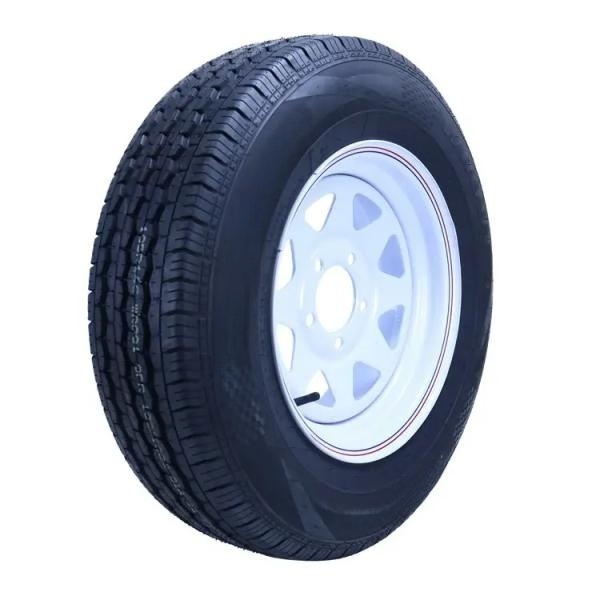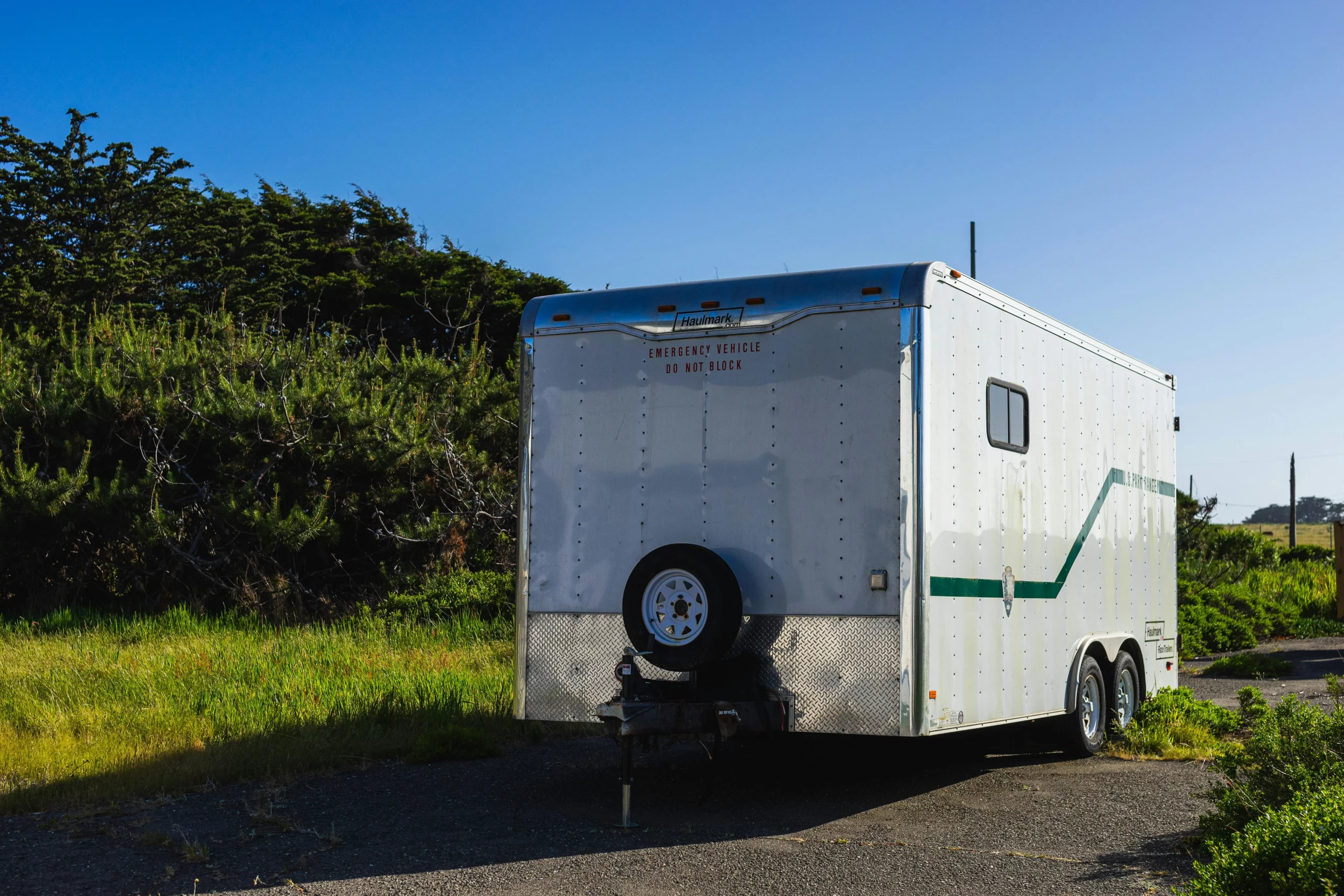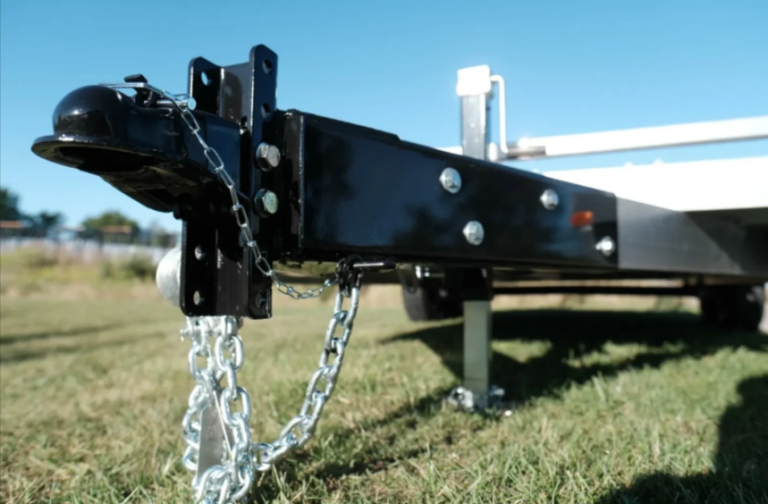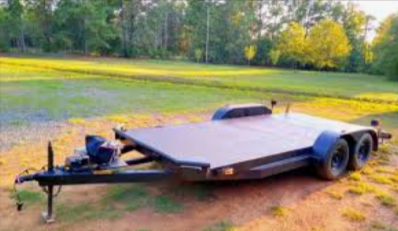You probably know an amount about tires from taking care of your car. However, this knowledge might make you a bit uncertain when it comes to trailer tires. Are they like the tires on your car? Do they need to be balanced? How long do they usually last? This article covers seven common questions people ask about trailer tires.
1. Do Trailer Tires Need to Be Balanced?
The Quick Answer: No.
The Detailed Explanation:
You don’t necessarily have to balance trailer tires unless you want to ensure a ride for passengers traveling behind the towing vehicle! Trailer tires are primarily designed to support the weight. May not require balancing like car tires do for optimal driving performance. However, if you’re journeying with an RV, along the highway it could be beneficial to balance the tires to reduce any vibrations that might be felt during the trip. On the other hand, if it’s a utility trailer mainly used for light highway driving or short distances having perfectly balanced tires may not be as crucial.
2. What is the Load Range on a Trailer Tire?
The Quick Answer is that the load range indicates how much weight the tire can handle.
The Detailed Explanation:
The weight-carrying ability of a tire is denoted by a letter such as B, C, or D. For instance, a load-range tire has a higher weight capacity compared to a load-range B tire of the same size.
Important Considerations:
- Load range varies by tire size, meaning that a 175/80-13 load range B tire might have a 1,100-lb capacity, while a 205/75-14 load range B tire might have a 1,430-lb capacity.
- If you decide to switch to tires that can handle weight on your trailers load capacity but keep the same wheels and axles with lower weight limits as before if they’re not changed too—since the component, with the lowest weight limit determines how much you can carry overall—simply getting higher capacity tires won’t automatically boost your trailers load capacity.
- Higher-capacity tires are usually more expensive.
3. Can I Use Trailer Tires on My Car/Truck (Or Vice Versa?)
The short response is no, except for truck tires.
The Detailed Explanation:
ST (Special Trailer) tires are specifically designed to handle the weight and turning pressures of trailers, while P (Passenger) tires have flexible sidewalls made for passenger comfort and steering ease. It’s generally not recommended to swap them out since they each serve purposes.
Exceptions:
LT (Light Truck) tires are sometimes used for trailers and fifth wheels because of their sidewalls.
Reasons to use LT tires on trailers:
- LT tires are typically available locally at affordable prices.
- They usually have higher speed ratings than ST tires.
Remember this point – if you opt for LT tires for your vehicle’s needs, make sure they can handle the weight they need to carry.
4. How Long Do Trailer Tires Last?
The Quick Answer: 3-6 years.
The Detailed Explanation:
It’s commonly advised to replace the tires on your trailer every 3-5 years for upkeep and safety reasons. However, the main issue with these tires is their tendency to sit still for periods when not in use, resulting:
- Flat spots
- Dry rot
- Deterioration due to oxidation
Storing tires in a garage may still lead to issues like rot and flat spots over time. Experts recommend swapping out tires that are 5 to 10 years old or have covered 10,000 to 12,000 miles, regardless of how they look.
How to Determine the Age of Your Trailer Tires
You can determine the age of your tires by inspecting the DOT (Department of Transportation ID number located around the tire’s side). The final four digits of the code indicate the manufacturing date of the tire; for example “0418” signifies that it was produced in 2018.

5. Why Do My Trailer Tires Keep Blowing Out?
The immediate response would likely be that there might be an error on your part.
The Detailed Explanation:
Common causes of tire blowouts:
- Excessive heat caused by underinflation: Aside from checking the PSI with a tire pressure gauge, you can look at the wear patterns on your tires. Uneven wear on the outer edges of the tire could mean it’s underinflated.
- Overloading the tire
- Exceeding the speed rating: The speed rating is listed on the sidewall of the tire.
- Flat spots or sidewall rubbing: This could be a sign of clearance or braking problems.
- Bent spindles(less common)
The tires’ central wear suggests it may have been overinflated since tires typically wear out when properly inflated and aligned.
6. Why Are Trailer Tires Bias Ply?
The simple response is that they are not (at not all of them).
The Detailed Explanation:
There are two types of tires: Bias and radial, which are known for their structures.
- Bias ply tiresThe cords inside run at a 32-degree angle to the direction of travel.
- Radial tiresThe cords run at a 90-degree angle, across the tire from wheel lip to wheel lip.
Radial tires offer flexibility that improves contact with the ground and traction as well as provide stability and durability in tread wear when compared to bias ply tires, making them a common choice for highway driving with their ability to run cool and long lifespan renowned among drivers. Off-road enthusiasts opt for bias ply tires because of their sidewalls that prove beneficial for navigating rugged terrains and embarking upon adventurous journeys.
It’s important to remember not to combine bias and radial tires on a trailer because it can cause wear and tracking problems.
7. How Can You Protect Trailer Tires from Dry Rot?
The Quick Answer: Work them and then wrap them.
The Detailed Explanation:
Steps to protect tires from dry rot:
- Use a wheel cover when your trailer is not in use. This protects the tires from UV rays, water, and dirt.
- Jack up your tires. Alternatively, park on plywood boards to keep your tires off the ground when you’re not using the trailer.
- Ensure tires are properly inflated. Use a tire pressure gauge or tire pressure monitoring system to check, as trailer tires can look fine even when underinflated.
- For long-term storage, remove your tires. Store them in a cool, dark place.
What causes dry rot?
- Excessive heat and sun
- Lack of use
- Underinflation
Go Trailer: Your Reliable Trailer Tire Supplier
Go Trailer is a Qingdao-based company in China that specializes in producing parts for trailers with more than 15 years of experience in the trailer tires and wheels sector They are reputed for their top-notch trailer components like jockey wheels, winches, couplers, axles, and springs. Furthermore, they have a reputation for their skill in constructing various types of trailers such, as boat trailers cage trailers, and car trailers.
Quality Assurance and Product Range
At Go Trailer Company, they have engineers and skilled workers who use production machinery to ensure high-quality products are made on their trailer manufacturing line, which includes electrocoating and painting facilities right at the site.
Why Choose Go Trailer?
Advantages of choosing Go Trailer:
- Capability: Go Trailer has over 15 years of experience in manufacturing trailer parts and trailers.
- Quality Guaranteed: They have highly automated production equipment and experienced professionals to ensure high-quality products.
- Price Competitiveness: Working directly with Go Trailer allows you to avoid dealers and get competitive prices on trailer parts.
- On-Time Delivery: Go Trailer is committed to timely delivery and excellent customer service.
- After-Service Guaranteed: They offer after-sales service support, including the replacement of defective products.
You’ll discover all your trailer needs under one roof at Go Trailers store, where they pride themselves as a supplier of trailer components committed to maintaining safety standards and providing top-notch products with honesty in every transaction.





